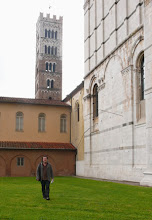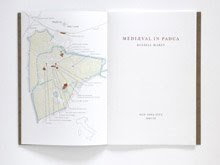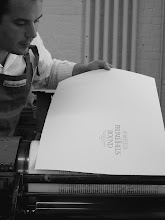In the summer of 2000, while reading a theory that proposed that the
sphere is an intersticial state between point and plane, I experienced
what at the time I could only describe as a geometric epiphany. (The
label psychotic break was later suggested as an alternative
description.) In a single, white-hot moment of comprehension the
universe came alive for me as a vast, breathing mechanism powered by an
infinite number of smaller lungs, each contracting and expanding from
point to plane and back again. In their moments of uttermost expansion,
the planes would pierce other planes, spheres, and points, creating
intersections of change, points that would then activate into an
expansion of their own. The resulting plotting of points would describe a
series of lines connecting one intersection with another; each line, in
turn, mapping a distinct organic pathway. As an illustration of organic
process—of life—a squiggled line drawn from one random encounter to
another resonated with me in a way that circular models of life never
had. The circle places too much emphasis on the emergence from and
return to nothingness, an even, unchanging track from birth to death,
without illustrating the myriad tangential experiences by which a life
is defined while being lived. The circle is a philosophical model
of life; the random, squiggly line an experiential one. Over time each
squiggle would recede into just another scratch in the visual static of
existence, but while alive every point along its length would sing in a
whir of movement, beating in time to the all-encompassing organ of the
universe.
The experience of the universe as a vast lung
or a conglomeration of whirring spheres is nothing new. As Lorenzo says
to Jessica in The Merchant of Venice, 'There’s not the smallest
orb which thou behold’st, but in his motion like an angel sings, still
quiring to the young-eyed cherubims.' The problem, of course, with the
mathematical theories of crackpots and poets is that they typically have
little to do with science. I do not like thinking of my life as a
circle. In the end, it’s as simple as that. But the sensation of being
pulsed through with the same recursive movements of all matter; of every
particle being alive, rotating, expanding, and contracting with sound,
light, and breath is irrefutable to me, whether as science or as a
beautiful idea. Even numbers breathe like the ocean tides, receeding,
coupling, and moving forward; locking hands across great distances,
forming brief alliances against the dark.
Friday, May 24, 2013
Subscribe to:
Posts (Atom)


